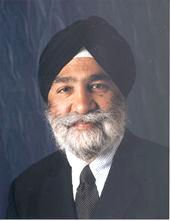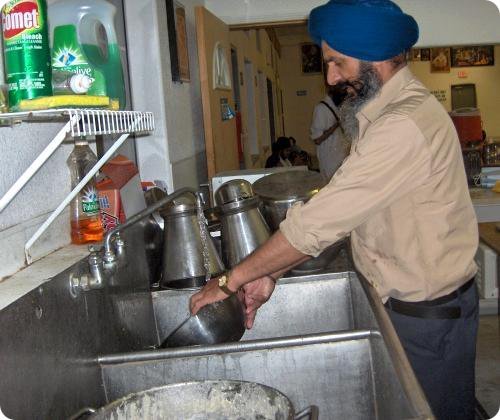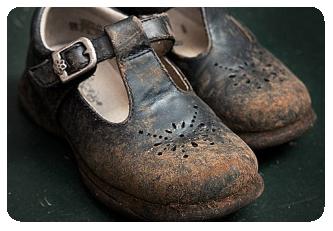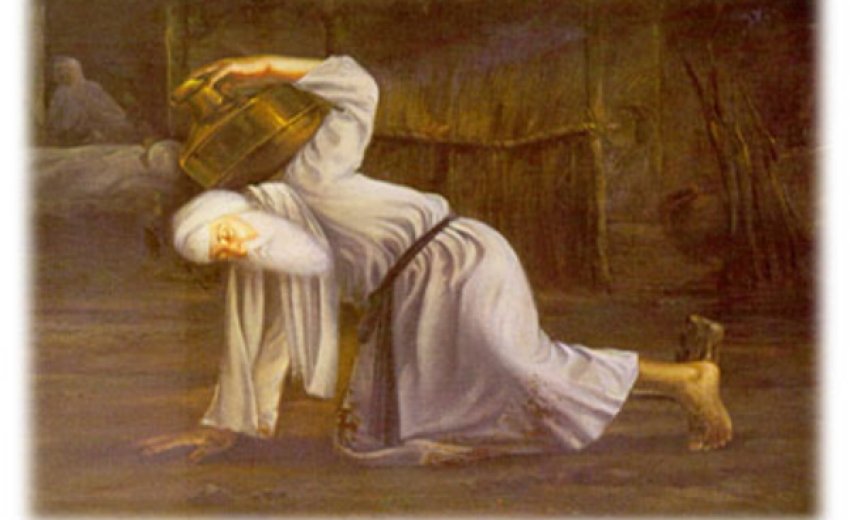 I have noticed that the concept of seva - loosely translated as "selfless, voluntary service" - is nowadays increasingly wielded as a weapon and less as what it is meant to be.
I have noticed that the concept of seva - loosely translated as "selfless, voluntary service" - is nowadays increasingly wielded as a weapon and less as what it is meant to be.
The other day, when a community volunteer was asked why she repeatedly failed to do what she had undertaken to do, why she hadn't met her obligations fully or in a timely fashion, I was flabbergasted by the response I overheard:
"I do seva, bhenji", she protested. "I'm not getting paid for this. I spend so many hours here, while I could easily be doing something else. I don't have to listen to this nonsense: if you don't want me here, say so, and I'm gone!"
It was a deft use of the very essence of seva. As a shield - a shield from criticism and from accountability.
On another occasion, I heard a fellow wield the word somewhat differently, but equally effectively.
He was addressing members of a community group. "I'm the one who can run this organization and ensure that it stays alive. I've done seva for three years ... day and night, and weekends too. And haven't taken a single cent for my time. How can you even think that another person should come over and run it. Others will simply run it to the ground. And, you know, I'm not going to let you do this. I'm not going to let you turn all my seva into nought!"
I felt, as I watched him through this performance, that he was wielding his seva quite deftly... as a weapon. A sword, actually. The parry and thrust was working: you could see it in the wounded look in the eyes of the audience.
Is this what seva is all about?
Am I wrong in thinking that the moment you use seva ... yes, USE it ... for any ulterior purpose, then it instantly ceases to be seva? If it loses its spiritual core, then all you're left with is ... a clumsy weapon.
The concept of seva, I feel, is simple and uncomplicated in Sikhi.
The very idea of seva begins with a metaphor: that of the milk-pot or vessel. Nanak says:
First, wash the vessel,
Next, disinfect it with incense.
Then, and only then, is it ready to receive the milk.
[GGS, M1, 728:1]
True. What good is the milk once it has been poured into a soiled receptacle? The dirt of the vessel taints everything that is poured into it. The mind, like the vessel, first needs to be cleansed if one is to prepare it for things spiritual. Otherwise, all effort goes to waste. And this cleansing of the mind, the preparation, is done with the "soap" of humility.
The mind, like the vessel, first needs to be cleansed if one is to prepare it for things spiritual. Otherwise, all effort goes to waste. And this cleansing of the mind, the preparation, is done with the "soap" of humility.
So far, all of this is esoteric and philosophical. But Sikhi brings the exercise down to earth by guiding us how to do it while going about our day-to-day, ordinary lives.
In seeking humility, there's no need to blindly wade through religious tomes. No penances, no fasting, no retreats, no masochism of any kind. No feeding of priests, no pilgrimages, no renunciations, no onerous abstentions.
There's a simple, direct and effective way: seva.
No grandiose projects are necessary for this inner cleansing. We don't have to build monuments, or light bonfires on top of mountains, or even go on far-flung crusades fighting for world peace.
Just serving the basic needs of those who are in need puts us on the right path. At home, with the neighbour, around the corner, in the community we live in ... the concentric circles can get as wide or remain as narrow as the situation demands.
Feed the hungry, clothe the destitute, shelter the homeless.
Or even more simple: just wash the dishes at the langar, or serve food, or look after the shoes of those who come to worship.
Anonymity helps. Not wearing a t-shirt or bandana that proclaims SEVADAR, helps.
Doing it without fan-fare, without a shabash or pat on the back, is a definite plus. Doing things that others do not want to, or cannot do, is good. Sweeping the floor, or cleaning the washrooms are therefore bound to be the most rewarding.
One of the most moving sights I have seen in my life is something I witnessed a couple of years ago in Espanola, New Mexico. Singh Sahib Harbhajan Singh Yogi had shed his mortal coil and crowds from around the globe had arrived to celebrate his life. By the thousands. The logistics required to cater to the needs of these visitors from far and wide were stupendous. And one of them was the need for a platoon of portable toilets which were, I'm sure, leased for the occasion. It would've been terribly easy to have also bought the services of a handful of workers who could've maintained the facilities and kept them clean at all times.
And one of them was the need for a platoon of portable toilets which were, I'm sure, leased for the occasion. It would've been terribly easy to have also bought the services of a handful of workers who could've maintained the facilities and kept them clean at all times.
What touched me deep inside was the vision of our hosts who saw it as an unprecedented opportunity to do seva. Any time of the day or night, if you walked into the facilities, you saw a couple of the Sikhs from the Espanola sangat cleaning the toilets and water basins, or down on their hands and knees, cleaning the floor. It was arguably the cleanest spot within the endless acreage roped in for the events of the week.
And, you know, there was not a sign anywhere proclaiming, e.g., "Seva provided by the Sangat of ....."
Nothing. Not a word, not a peep.
That's seva.
It's for the sheer sake of seva. It has no other goal. Even the end result is not important. You don't need a smile or a nod, a pat on the shoulder, or the gratitude of another to validate it. You simply do it, and you do it to the best of your ability, and nothing else matters.
You don't go home and note it in your diary. Or tell your family and friends. Or have it published in a newsletter in the "Acknowledgment" section.
And you don't wave it in the face if you are running for election the next time around.
Here's what I've been taught and what I try to emulate .... though those who know me well could easily cite many a lapse:
Don't let the right hand know what the left hand does ...
It isn't seva if it is for the purpose of getting a tax-deductible receipt.
It isn't seva if your heart and soul aren't in it.
It isn't seva if it isn't done with honesty and integrity.
It isn't seva if you believe that mediocrity is all that is expected of you, and that you needn't do more.
It isn't seva if it's for building your resume.
It isn't seva if it is meant to be a stepping stone to bigger and better things.
It isn't seva if you need to tell others, now or later, that you did it.
It isn't seva if lack of appreciation by others, or their criticism, drives you away.
It isn't seva if you believe that it is your right to do it.
It isn't seva if you have to fight against others to do it.
It isn't seva if you snatch it away from another, to do it.
It isn't seva if you begin to believe you're the best one to do it.
And, it isn't seva if it distresses you that others take credit for what you've done.
Not too long ago, I was blessed with an opportunity to visit the Durbar Sahib in Amritsar, after an absence of more than three decades. There were so many things that added to the joy of being there. Not the least of it was the timeless sight at all hours of the day or night, literally - even in the cold and dark hours before dawn - of men, women and children behind the counter, tending to the shoes of pilgrims.
Not the least of it was the timeless sight at all hours of the day or night, literally - even in the cold and dark hours before dawn - of men, women and children behind the counter, tending to the shoes of pilgrims.
Quiet faces, moving in the shadows. Ever-so-slight, barely discernible quivering of the lips, silently accompanying the kirtan playing from the speakers around them. No small-talk. No name-tags. No meeting of the eyes, no searching for acquaintances. Just simple, purposeful, swift, efficient movements ... the queues were long.
There's always a hush around the shoe-stalls outside the main entrance, I've noticed. The only words you hear are "satnam, satnam..." and "waheguru, waheguru..." And a lot of "ji...ji...jee-o...ji ..."
I don't know how they do it. But I see them taking each pair of foot-wear as if it is a house-warming gift. Lovingly, gently, softly ... if you glance back for a split-second, as you turn away, you may even catch one in the shadows wiping the dirt off your shoes as they are placed on the shelves.
I tell you, it is there, standing on the cold wet marble, looking at this scene, that I experienced the first communion with what I had come searching for, after all these years, at the doors of the Harmander.
It is the epitome of seva.
And, it is most magical when - and I borrow from the English Bard - it "is not strain'd"...
It droppeth as the gentle rain from heaven
Upon the place beneath.
It is twice blest:
It blesseth him that gives and him that takes.
May we all, each one of us, be blessed with this gift.
[This article was first published on February 10, 2007 and republished: January 28, 2010 because of current discussion threads on SikhChic.com on the
subjects of seva, langar and haumai.]
